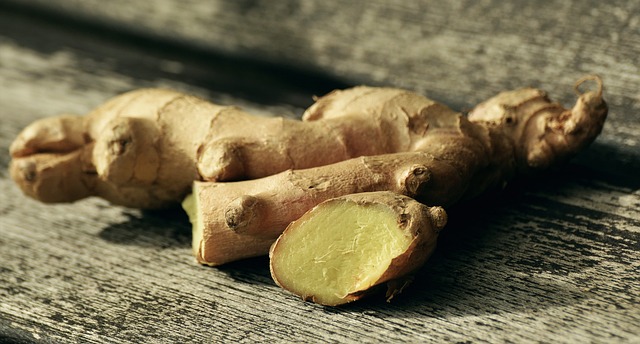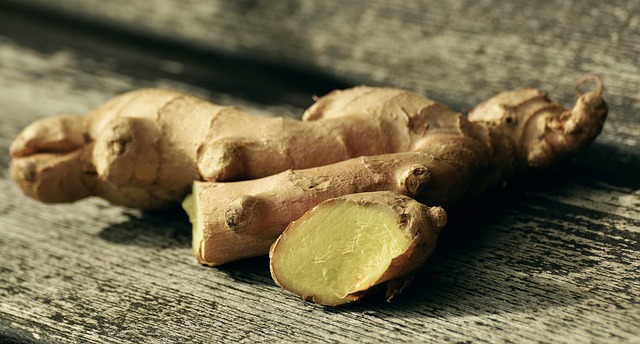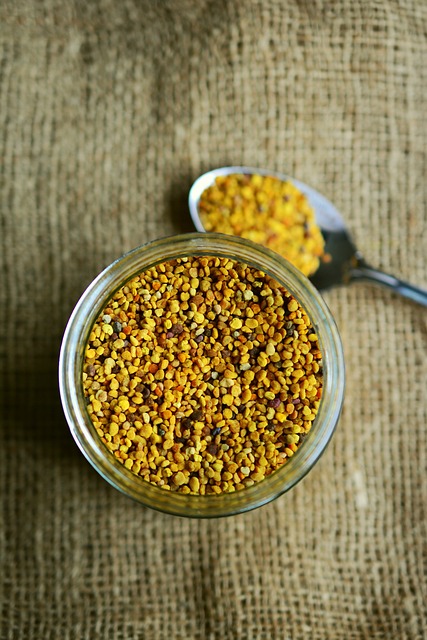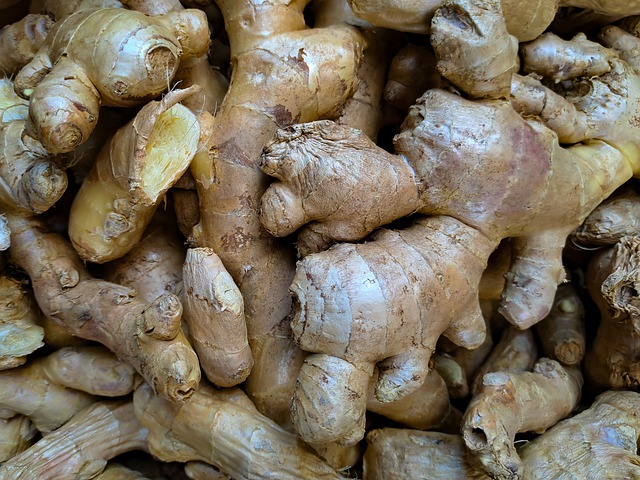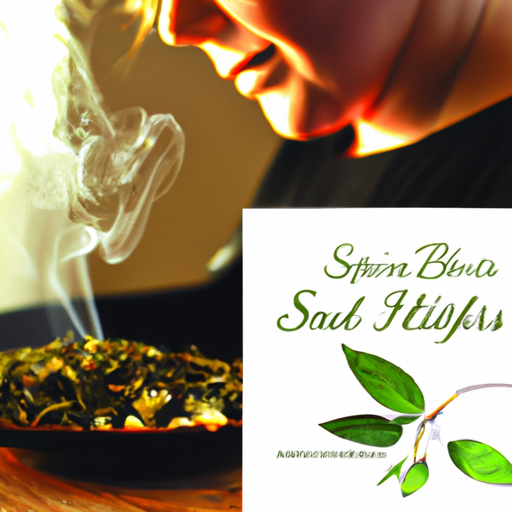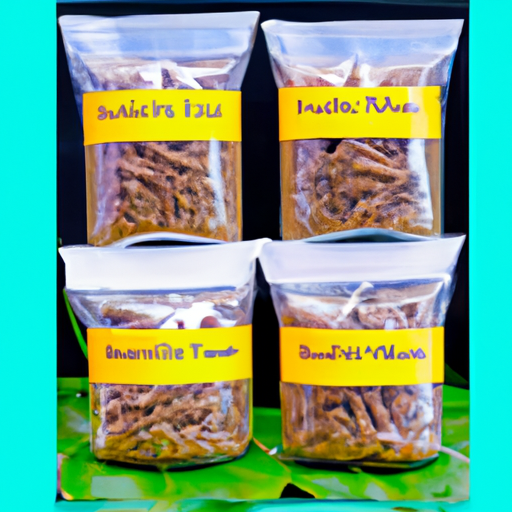Feeling a bit stressed out lately? Life can definitely throw some curveballs at you, leaving you feeling anxious and on edge. But have you ever wondered if there are any natural remedies out there that can help ease those anxious feelings? Well, you’re in luck! In this article, we’re going to dive into the world of herbal anxiety medication and explore some potential options for you to consider. Whether you’re a fan of alternative medicine or simply looking for a natural approach to anxiety relief, we’ve got you covered.
Now, we all know that anxiety can be a real pain. From that constant feeling of worry to the physical symptoms like a racing heartbeat or sweaty palms, it can really take a toll on your overall well-being. But what if there was a way to find some relief without resorting to prescription medications or therapy? That’s where herbal anxiety medication comes into play. These natural remedies are said to help calm the mind, promote relaxation, and reduce anxiety symptoms. From popular herbs like lavender and chamomile to lesser-known alternatives like passionflower and valerian root, the world of herbal anxiety medication is vast and varied. In this article, we’ll take a closer look at some of these herbs and discuss their potential benefits and recommended dosages. So, if you’re curious about natural ways to manage your anxiety, keep reading to learn more!
Understanding Herbal Anxiety Medication
Anxiety is a common mental health condition that affects millions of people worldwide. It can cause significant distress and impact daily functioning. While there are several pharmaceutical medications available for treating anxiety, some individuals may prefer to explore natural alternatives. Herbal anxiety medication offers a potential solution for those seeking a more holistic approach to managing their anxiety. In this article, we will delve into the world of herbal remedies for anxiety, discussing their benefits, types, effectiveness, safety, dosage, and administration. We will also explore how these herbal remedies can be combined with other treatments and the potential risks and precautions associated with their use. Additionally, we will provide insight into legal considerations, quality control, and user experiences to help you make informed decisions about herbal anxiety medication.
Defining Anxiety Medication
Anxiety medication encompasses a wide range of drugs and treatments designed to alleviate the symptoms of anxiety disorders. These medications work by modulating brain chemistry and reducing excessive neural activity. While pharmaceuticals have been the traditional route for anxiety treatment, herbal remedies offer a natural alternative. These remedies utilize plants and plant extracts to promote relaxation, reduce stress, and calm the mind.
Overview of Herbal Remedies
Herbal remedies have been used for centuries in traditional medicine systems across various cultures. These natural remedies harness the therapeutic properties of specific plants to support overall well-being. Herbal anxiety medication focuses on utilizing herbs with calming and soothing effects that can alleviate anxiety symptoms. These remedies typically come in the form of teas, capsules, tinctures, or essential oils and can be sourced from local health stores or online retailers.
Benefits of Herbal Anxiety Medication
One of the primary benefits of herbal anxiety medication is the potential reduction in anxiety symptoms without the side effects often associated with pharmaceutical drugs. Many herbal remedies have a long history of use and are generally considered safe when used correctly. Additionally, herbal medicine often takes a holistic approach, addressing not only the symptoms but also promoting overall well-being. This comprehensive approach can have additional benefits such as improved sleep, enhanced mood, and increased feelings of relaxation.
Common Types of Herbal Anxiety Medication
There are several types of herbal anxiety medication available, each with its unique set of properties and potential benefits. Three of the most common include chamomile, lavender, and passionflower.
Chamomile
Chamomile is a popular herbal remedy known for its calming properties. It contains compounds like apigenin, which interact with the brain’s receptors and promote relaxation. Chamomile can be consumed as a tea or taken in supplement form. It is often used to reduce anxiety symptoms, promote sleep, and soothe digestive issues.
Lavender
Lavender is another widely recognized herb with powerful relaxation properties. The scent of lavender has been shown to have a calming effect on the nervous system, reducing anxiety and promoting a sense of tranquility. Lavender can be used as an essential oil in aromatherapy or consumed as a tea or supplement.
Passionflower
Passionflower is a herb that has been used for centuries as a natural remedy for anxiety. It contains compounds that increase levels of gamma-aminobutyric acid (GABA) in the brain, a neurotransmitter that helps regulate anxiety. Passionflower is often consumed as a tea or taken in capsule form to alleviate anxiety symptoms.
Effectiveness and Safety of Herbal Anxiety Medication
Research studies on herbal remedies for anxiety have yielded mixed results. While some studies show promising effects, others have found little to no significant benefit. It is important to note that the effectiveness of herbal anxiety medication may vary based on individual responses and the severity of anxiety symptoms. It is always advisable to consult with a healthcare professional before starting any new treatment, especially if you have pre-existing medical conditions or take other medications.
When used correctly, herbal anxiety medication is generally considered safe. However, it is essential to be aware of potential side effects and interactions with other medications.
Potential Side Effects
Although herbal remedies are generally well-tolerated, some individuals may experience adverse reactions. Common side effects of herbal anxiety medication can include digestive issues, headaches, dizziness, drowsiness, and allergic reactions. If you experience any severe or prolonged side effects, it is important to discontinue use and seek medical attention.
Interactions with Other Medications
Herbal anxiety medication can interact with certain medications, leading to potential adverse effects or reducing the effectiveness of either treatment. It is crucial to disclose all medications, including herbal remedies, to your healthcare provider to ensure safe and effective treatment.
Choosing the Right Herbal Anxiety Medication
When considering herbal anxiety medication, it is important to consult a healthcare professional to determine the most suitable option for your specific needs. They can assess your symptoms, medical history, and any potential interactions with other medications. Additionally, understanding individual needs, considering allergies and sensitivities, and carefully researching different herbal remedies can contribute to informed decision-making.
Consulting a Healthcare Professional
A healthcare professional, such as a naturopathic doctor or herbalist, can provide invaluable guidance when selecting herbal anxiety medication. They have in-depth knowledge and experience in the field and can recommend specific remedies based on individual circumstances. They can also help monitor your progress and make any necessary adjustments to your treatment plan.
Understanding Individual Needs
Each person may respond differently to herbal anxiety medication, so it is important to understand your unique needs and preferences. Factors such as the severity of anxiety symptoms, lifestyle, dietary restrictions, and personal beliefs should be considered when choosing the right herbal remedy.
Considering Allergies and Sensitivities
It is crucial to consider any allergies or sensitivities you may have when exploring herbal anxiety medication. Some herbs can cause allergic reactions or interact negatively with certain individuals. If you have known allergies or sensitivities, it is essential to thoroughly research the herbs and consult a healthcare professional.
Proper Dosage and Administration
To ensure the effectiveness and safety of herbal anxiety medication, it is crucial to follow recommended dosage guidelines and administration methods.
Recommended Dosages
The appropriate dosage of herbal remedies may vary depending on the specific herb, its form, and individual factors. It is important to carefully read product labels and follow the instructions provided by the manufacturer. As dosage recommendations can vary, consulting a healthcare professional can help determine the optimal dosage for your needs.
Methods of Administration
Herbal anxiety medication can be administered in various forms, including teas, capsules, tinctures, and essential oils. Each method has its advantages and considerations. For example, teas and tinctures are typically consumed orally, allowing for easy absorption. Essential oils may be used in aromatherapy or topically, depending on the specific oil and its intended purpose. It is important to familiarize yourself with the recommended method of administration for each herbal remedy.
Frequency and Timing
Establishing a consistent schedule for taking herbal anxiety medication is important for optimal results. Following the recommended frequency and timing guidelines provided by the manufacturer is essential. It is advisable to set a reminder or incorporate the medication into your daily routine to ensure regularity.
Combining Herbal Anxiety Medication with Other Treatments
Herbal anxiety medication can be used in conjunction with other treatments to enhance their effectiveness and address anxiety from multiple angles.
Therapy and Counseling
While herbal remedies can help alleviate anxiety symptoms, they do not address the underlying causes of anxiety. Combining herbal anxiety medication with therapy or counseling can provide a comprehensive approach to anxiety treatment. Therapy can help individuals understand the root causes of their anxiety, develop coping strategies, and learn techniques for managing stress.
Lifestyle Modifications
In addition to herbal anxiety medication, making certain lifestyle modifications can support overall well-being and reduce anxiety. Engaging in regular exercise, practicing stress management techniques like meditation or yoga, maintaining a healthy diet, and ensuring quality sleep are all lifestyle factors that can contribute to anxiety reduction.
Pharmaceutical Medications
Some individuals may choose to combine herbal anxiety medication with pharmaceutical drugs for anxiety treatment. It is essential to consult a healthcare professional when considering this approach, as herb-drug interactions can occur. Your healthcare provider can guide you on the safe and effective use of both herbal and pharmaceutical medications.
Potential Risks and Precautions
While herbal anxiety medication is generally safe, certain populations should exercise caution and consider potential risks and precautions.
Pregnancy and Breastfeeding
Pregnant or breastfeeding individuals should exercise caution when using herbal remedies for anxiety. Some herbs may have hormonal effects or potential risks to fetal or infant development. It is advisable to consult with a healthcare professional before using any herbal anxiety medication during pregnancy or breastfeeding.
Allergic Reactions
As with any medication or natural remedy, allergic reactions can occur. It is important to be aware of any potential allergies to specific herbs and discontinue use if an allergic reaction occurs. If you experience severe symptoms, such as difficulty breathing or swelling, seek immediate medical attention.
Long-Term Use
The long-term effects of herbal anxiety medication are not yet fully understood. While many herbs have been used for centuries with no reported long-term adverse effects, it is important to monitor your individual response and consult a healthcare professional if you have any concerns.
Legal Considerations and Quality Control
When purchasing herbal anxiety medication, it is important to consider legal regulations and ensure quality control. The Food and Drug Administration (FDA) in the United States regulates herbal remedies differently than pharmaceutical medications.
FDA Regulations
The FDA does not regulate herbal remedies in the same way it regulates pharmaceutical drugs. As a result, quality and safety standards can vary among different herbal products. It is essential to research reputable brands and manufacturers and look for products that have undergone third-party testing or certification.
Researching Reliable Sources
Due to the lack of regulation, it is crucial to research and purchase herbal anxiety medication from reliable sources. Look for brands that have a history of quality and positive customer reviews. It can also be helpful to seek recommendations from healthcare professionals or individuals who have successfully used herbal remedies for anxiety.
Third-Party Testing and Certification
To ensure the quality and safety of herbal anxiety medication, look for products that have undergone third-party testing or have obtained certifications from reputable organizations. Third-party testing provides an additional layer of assurance that the product meets quality and purity standards.
User Experiences and Reviews
While anecdotal evidence and user reviews can provide insights into the potential effectiveness of herbal anxiety medication, it is important to remember that individual experiences can vary greatly. What works for one person may not work for another. It is essential to approach user experiences and reviews with an open mind and consider them as part of your overall research process.
Anecdotal Evidence
Many individuals have reported positive experiences with herbal anxiety medication, citing reduced anxiety symptoms, improved sleep, and an overall sense of calm. Anecdotal evidence can be valuable in gaining a general understanding of the potential benefits of herbal remedies, but it should not be the sole basis for decision-making.
Online Forums and Support Groups
Online forums and support groups can provide a platform for individuals to share experiences and exchange information about herbal anxiety medication. Engaging in these communities can offer insights, tips, and alternative perspectives. However, it is important to exercise caution and verify information from reliable sources.
Importance of Individual Results
While user experiences and reviews can be informative, it is crucial to remember that each person’s experience with herbal anxiety medication can vary. What works for one person may not work for another due to individual factors and the unique nature of anxiety. It is always advisable to consult a healthcare professional for personalized advice and guidance.
Conclusion
Herbal anxiety medication offers a natural alternative for individuals seeking relief from anxiety symptoms. These remedies harness the therapeutic properties of specific plants to promote relaxation and reduce stress. While herbal remedies can be effective and generally safe, it is important to consult a healthcare professional to ensure appropriate usage and optimal treatment outcomes. Combining herbal anxiety medication with other treatments, such as therapy or lifestyle modifications, can provide a comprehensive approach to anxiety management. When considering herbal remedies, it is essential to be aware of potential risks, allergies, and quality control. Researching reliable sources and considering individual needs and preferences can help in making informed decisions. Remember that user experiences and reviews can provide insights but should not be the sole basis for decision-making. Overall, herbal anxiety medication can play a valuable role in managing anxiety, promoting relaxation, and supporting overall well-being when used in conjunction with professional guidance and individualized care.
